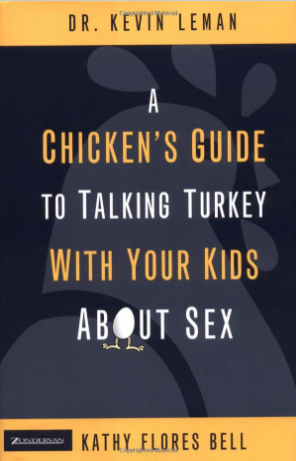As we’ve been going through this Healthy Sexuality series, I thought it might be helpful to write a couple book reviews from sources I’ve found.
Hopefully they will be useful for you and your family and aid you in discussing healthy sexuality with your children.
-Mariah
How to Talk with Your Kids About Sex by Dr. John Chirban:
-
Not specifically a Christian point of view but respects and advocates for healthy spirituality as a part of wholeness
-
Broken into 3 parts: Effective communication skills, a break down of kids’ developmental stages relating to their sexuality and ability to comprehend it, and a guide to talking about specific, hot button issues
-
Section one: Helps parents assess where they are at in their preparedness for having these conversations. Has helpful information but also a number of detailed exercises to practice with and get an understanding of what parents are bringing to the table. Walks the reader through cultivating a narrative for themselves and their family about what healthy sexuality looks like so that they have a clear picture of what they want to present. There is also an amazing guide on listening skills that teaches readers how to hear and respond to their children’s inquiries in a way that is supportive and understanding.
-
Section two: Gives an overview of the sexual development of each age range, pointing out normative behavior and cognitive understanding. This section also has tips for parents on how to help the child learn about their sexuality in a way that is developmentally appropriate for that age as well as things to steer away from. Also discusses having “the talk” with a 9-10 year old, how to do so and what to expect with sample scripts and questions answered.
-
Section three: Overview of how to talk to kids about specific issues such as body image, peer pressure, same-sex attraction, masturbation, pornography, abstinence, sexting/internet dating, and sexual abuse. These overviews seem more to be the beginnings of conversations that the author invites the readers to have and decide for themselves where they stand on the issues. The book ends on a discussion about the relationship between sex, intimacy and love which helps the reader and their children make those connections.
Overall, this book is very thorough. It does a good job at addressing all covered material in a balanced manner, not claiming to know what is right for every family. I appreciated the author’s constant invitation to the reader to think through the issues for themselves while offering practical information, examples and exercises as a starting off point.
A Chicken’s Guide to talking Turkey with your Kids about Sex by Dr. Kevin Leman & Kathy Flores Bell:
-
Written for parents of kids going through puberty.
-
First couple chapters outline the crucial role parents play in children’s sexual development and understanding. It highlights importance of having conversations around sexuality as well as having a healthy sexual environment in the home to cover both the overt and covert messages sent to kids about sex.
-
Peer pressure and self esteem are covered next. The book helps readers feel empowered to guide their kids navigate peer influence rather than be scared of it. In regard to self esteem, the book encourages parents to “ascribe dignity” to their children and their changing bodies as a reflection of God’s design and love for them.
-
Chapters 7-10 are guides to walking kids through the journey of changing bodies. Helpful, practical information is given on everything from personal hygiene to masturbation in a non-anxious, normalizing way. It offers practical examples of how to handle sticky situations so that readers can feel like they have a road map.
-
Chapter 11 is a guide to have “the talk” with kids. This chapter does an awesome job at giving some do’s and don’ts when having this discussion, with an emphasis on the biology, respect for sex, honesty, and sex being about relationship more than skill. It also includes an exercise for parents to practice answering possible questions so they feel prepared.
-
The end of the book works on trouble shooting with readers about how to have conversations with your child’s sex-ed instructor at school and what to do if your child is sexually active.
Over all this book does a fabulous job at taking a non-anxious, empowering stance towards a Christian parent’s role in their child’s sexual development. It includes practical information and structure for conversations while not coming across as preach or shaming.

